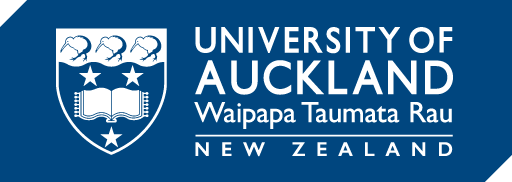by crus754 | Dec 5, 2010
Speaker: Dr Yuelan Chen
Affiliation: School of Economics, The University of Queensland (http://www.uq.edu.au/~uqychen7/cv1009.pdf)
Title: Political Compensation in Two-Stage Elections (with Sven Feldmann)
Date/time: Tuesday 7th December 11am—12 Noon (All Welcome – drinks and lunch to follow the presentation)
Location: Sir Neil Waters Lecture Theatre NW100, Massey University, Albany Campus
Abstract: We study a two-stage election with two parties, each nominating a candidate in the first stage primary election to compete with the other party’s nominee in the second stage general election. This resembles the U.S. presidential election and is used in many countries in the world, but has largely escaped attention in the literature. We extend Coleman (1971) and Roemer (1997) to model such elections in the presence of uncertainty about the median voter’s position in the general election. For a given nominee by the other party, each voter in the primary chooses an optimal policy which takes into account both her ideological preference and each candidate’s winning probability in the general election. We characterize sufficient conditions under which the two parties’ equilibrium policies are their respective median voter’s optimal policy against each other. In particular, such a stable outcome is possible only if we allow candidates to freely enter or withdraw from the primary elections.
by crus754 | Dec 2, 2010
A job advertisement that may be of interest to CMSS members.
by crus754 | Nov 24, 2010
Communications of the Association for Computing Machinery is the most prestigious general expository journal for Computer Science. A useful review article entitled Using Complexity to Protect Elections has been published this month by Piotr Faliszewski, Edith Hemaspaandra and Lane Hemaspaandra. Piotr has visited the CMSS earlier this year and the other authors are collaborators of CMSS members.
by crus754 | Oct 20, 2010
When: 12-1pm Wednesday 20 October, 2010
Where: Seminar Room, 303S.279
Speaker: Dr. Mark Wilson
Organisation: Computer Science, University of Auckland
Title: What is Computational Social Choice?
Abstract: In the last decade there has been an explosion of activity at the interface between computer science and economics. I will give a survey of some of this work, biased toward those areas about which I have substantial knowledge and/or interest, especially including voting rules.
Slides are available from my homepage www.cs.auckland.ac.nz/~mcw/blog/
Biography: Mark Wilson has worked in the Department of Computer Science since 2001. He received degrees from the University of Canterbury and the University of Wisconsin-Madison, was an NZST Postdoctoral Fellow at the University of Auckland, and followed this with 3 years teaching in the USA. His main research interests involve the interface between discrete mathematics, theoretical computer science, and social choice theory. He is the Acting Director of the recently established Centre for Mathematical Social Sciences.
by crus754 | Oct 20, 2010
Speaker: Steffen Lippert
Affiliation: School of Economics and Finance, Massey University at Albany
Title: “On Moral Hazard and Joint R&D” (with Simona Fabrizi)
Date: Wednesday, 20 October
Time: 4:00 pm
Location: 301-242 [Science Centre, Symonds Street]
ABSTRACT
We analyze two entrepreneurs’ choices of how much to invest in competing product innovation projects, and whether to conduct them competitively, in a cross-licensing agreement, or in an R&D joint venture. We distinguish late and early-stage projects and allow for cooperative and non-cooperative conduct in the product market ensuing an R&D joint venture. We find that early-stage projects are more likely carried out as stand-alone R&D or in cross-licensing agreements than late-stage projects; and that lenient enforcement of non-cooperative product-market conduct after R&D joint ventures should depend on the stage of the R&D project. We propose a ‘market-size – synergy defense.’

Recent Comments